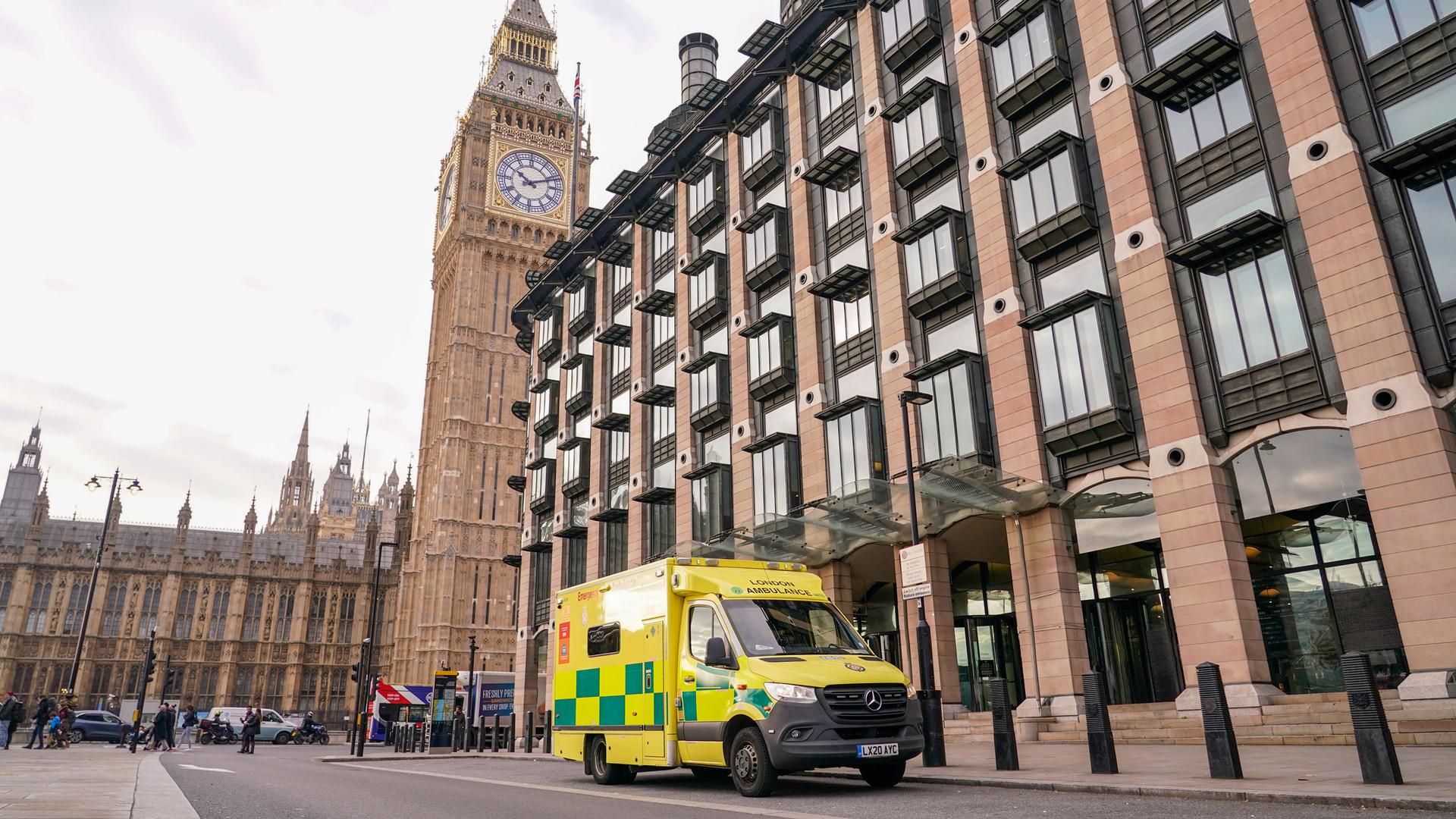Health workers from three of Northern Ireland’s biggest unions on Monday staged a walkout and manned picket lines outside hospitals.
“The weather here is absolutely bitter, but all the strikers are out with their hats and gloves, and members of the public have given us tea and sandwiches,” said Tanya Killen, a social worker outside a picket line at Belfast hospital.
“But this is not a situation any of us wanted to be in,” Killen added, “but people have such strong feelings.”
Across the United Kingdom this month, up to 100,000 nurses are predicted to take part in a series of strikes over pay and working conditions beginning on Thursday. The British government has so far refused to budge, which nurses warn ultimately puts patients at risk.
A recent pay increase of 4.5% and an extra $1,700 for other health staff was rejected as insufficient. Strikers are demanding the government increase pay above inflation (which is currently over 11%), boost staffing levels and address mileage costs for workers who drive.
“We have nurses, social workers, porters and other colleagues who can’t fill up their cars and are having to go to food banks.” Killen said. “People cannot afford to go to work, it’s an absolutely intolerable situation.”
Prime Minister Rishi Sunak questioned the cost of pay rises in a time of economic turmoil. Some government ministers have said that they are deeply concerned over the risks the strikes may pose to patients.
Padraig Mulholland, deputy secretary of NIPSA — the Northern Ireland Public Service Union — said that the strikes have been thought through.
“This action does not put the life and limb of patients at risk,” Mulholland reassured. “We’re very careful about that and we’re able to work with employers on it. If there is an emergency situation, we will cover it.”
Mulholland said that growing dissatisfaction in the sector is causing parts of the system to collapse, like the recent suspension of an emergency surgery unit at a hospital in County Fermanagh.
“People are now faced with traveling two to three hours in an ambulance for the nearest facilities, so the future of that hospital is under threat. Colleagues are being driven into poverty, looking for jobs elsewhere and that’s causing staff shortages.”
Ironically, the surgery unit in question was suspended due to a lack of staff, an issue that health workers across the UK say is crippling the system and threatening patient safety. There are a record 47,000 vacancies for registered nurses just in England alone. Members of the Royal College of Nursing there will stage a strike on Thursday — the first in its 106-year history.
One of those health workers is 28-year-old mental health nurse Harry Eccles, who works at a hospital on the south coast of England.
“I know many people who have left and know many people thinking about leaving and, if I’m honest, I thought about exploring different fields or working abroad where the deal is fairer,” Eccles said.
Eccles works in the field of addiction, helping people with severe drug and alcohol dependencies. Though the work can be harrowing, he loves his job and is worried that the profession is facing existential issues.
“We’re losing nurses with many years of experience, and newly qualified nurses that should have their whole careers ahead of them,” Eccles said.
“That’s a tragedy. It’s an essential role that society cannot do without, a role we all rely on, and to not even be able to afford the basics is incredibly disheartening.”
Eccles added that he sincerely hopes the government will agree to negotiations before the strikes start.
But the government even refused a last-minute offer by unions to call off the strikes if the issue of pay could be negotiated. Ministers seem to think that they can win a war of attrition, including by calling in the army to perform some duties.
But with more action by postal workers, train drivers, airport workers and even ambulance drivers all coming up this month, it is shaping up to be a winter of discontent.
Our coverage reaches millions each week, but only a small fraction of listeners contribute to sustain our program. We still need 224 more people to donate $100 or $10/monthly to unlock our $67,000 match. Will you help us get there today?
